Executives of three PR major firms spent nearly two hours on Dec. 8 telling members of the New York chapter of PR Society of America what they look for in new employees.
Our main takeaway was that agency people not only have to be good writers, ambitious, articulate and creative, but also business people.
They must know “how to run a business,” they must show what client goals were achieved at other agencies, or how they successfully ran their own businesses, the 65 attendees were told. Moderator was Art Stevens of The Stevens Group.
|
Photos: Sharlene Spingler |
PR people now often report to the chief marketing officer at clients, noted Richard Edelman, whose firm billed $797 million and employed 5,308 as of Dec. 31, 2014. It is 6.7 times as big as the nearest independent.
“If you can’t read a profit and loss statement or are economically illiterate, go back to school and take economics,” advised Edelman. “Learn how to run a business.”
Know What Specialties Are “Hot”
Peter Finn, founding partner of Finn Partners, which has grown in four years from 150 staffers to 500 in 12 offices handling $70 million in fees, described nine practice areas headed by tech and healthcare.
He advised jobseekers to check the nearly 500 specialty rankings that are compiled by the O’Dwyer Co. to see what specialties are generating the most fees. He described the culture of the firm as “Work hard, play nice.” About $1 million in firm time is devoted to public service projects.
The O’Dwyer tech/industrial category ranked 73 firms headed by Edelman with $265 million in fees in 2014. Finn Partners was No. 9 on the tech list with $12.7M in fees.
Eighteen of the top 25 firms had double-digit gains, reflecting the move of what is generally regarded as “PR” to the agency side of the industry.
Corporate PR departments have shrunk in recent years. At major companies, IR, marketing and legal have become dominant. The dominant corporate PR organization, now known as “Seminar” but called “PR Seminar” until 2008, holds its meetings off-the-record and membership lists are confidential.
|
|
No press coverage has ever been allowed even by editors attending or speaking at the annual four-day meetings at the finest resorts in the U.S. Fewer editors have attended in recent years possibly because they don’t want to take part in such off-the-record proceedings.
The last New York Times staffer to address the group was John Geddes, financial editor, who spoke to it in 1996. Catherine Mathis, NYT PR head from 1997-2009 and now with McGraw-Hill Education, was listed as an attendee for four years but she said she never went any of the meetings. NYT has never mentioned the existence of Seminar.
Another takeaway we got was that new employees will almost certainly come from an agency background. That has been industry wisdom for as long as we can remember. Working for a single company or institution builds a different mindset from that which is required in agency life. “You can go from an agency to a company but not vice versa,” say PR pros.
“Work Hard, Play Hard”
Ed Moed, co-CEO of Peppercomm, said the firm, which grew to $20M in 2015 from $16M in 2014, has a culture of “work hard, play hard.” Peppercomm “is entrepreneurial to the core,” he said. “Everyone in the firm is creative.”
It likes staffers “who take risks” even though mistakes may be made and who “create value for clients.” Successful job candidates will “show how smart they are” and how they may have managed a business. “We will ask you a lot of questions,” he said.
A sophisticated candidate will “turn the tables on me and ask me questions,” he said. Media relations skills are important but employees must also know how to manage a client relationship. Employees must become an integral part of the agency culture.
Peppercomm’s training program includes having staffers do a stand-up comedy routine since this helps them to build story-telling skills.
Foreign Service Is Route to Edelman
Edelman says successful job candidates who are most likely to agree to working abroad will be young and single. The firm has offices in more than 20 countries and is especially looking for recruits who have knowledge of French, Spanish or Mandarin Chinese.
“We are looking for people who have the flexibility to get up and go” to countries including those in Asia and the Middle East, he said. They must then have the ability to re-integrate themselves with U.S. staffers when they return from such a posting.
Edelman said the firm is “far too Anglo” and it is doing what it can to recruit candidates of color or who are Hispanic or Asian.
He touched on a problem that exists not only on the agency side but on the corporate side.
Paul Urges Minority Recruitment
|
|
Counselor Michael Paul, a longtime member of Seminar, this year skipped the May 31-June 3 meeting in Colorado Springs to protest lack of people of color in high posts.
There is only a “sprinkling” of minorities in the group which has nearly 300 members, he said. Paul is one of 13 executives on the website who are shown praising the group. One other person of color is also shown, Barry Caldwell of Waste Management.
Seminar, said Paul, “is like Davos for CCOs and PR executives. It is the most selective group of corporate communications and PR executives in our industry.”
Companies, PR firms, PR groups and executive recruiters have failed in recent years to recruit minorities for top positions, he said.The main thrust, according to Paul, is recruiting for entry-level jobs. He called for more action from groups such as the PR Council and the Arthur W. Page Society.
“For years we have heard cries of, ‘We can’t find any qualified senior executive candidates of color and that we must focus on entry level positions.’ It must stop now,” he said.

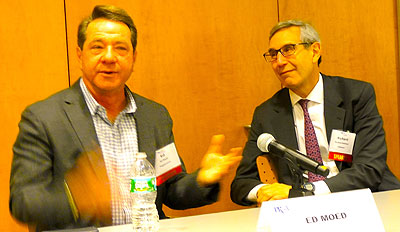
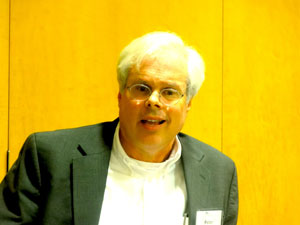
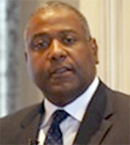

 PRSA-NY today announced its five honorary co-chairs for its Big Apple Awards ceremony gala slated for TAO Downtown on Nov. 15.
PRSA-NY today announced its five honorary co-chairs for its Big Apple Awards ceremony gala slated for TAO Downtown on Nov. 15. PRSA-NY president Carmella Glover today issued a "heartfelt apology" on behalf of the chapter for her Oct. 14 message that "caused disappointment and hurt to some of our valued members."
PRSA-NY president Carmella Glover today issued a "heartfelt apology" on behalf of the chapter for her Oct. 14 message that "caused disappointment and hurt to some of our valued members."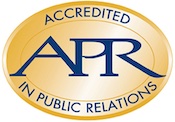 The leadership of Public Relations Society of America is backing a move to change the current “must-have” APR accreditation to “strongly preferred” as a requirement for a seat on its board of directors.
The leadership of Public Relations Society of America is backing a move to change the current “must-have” APR accreditation to “strongly preferred” as a requirement for a seat on its board of directors.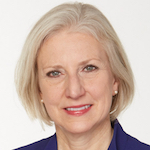 Public Relations Society of American today named Linda Thomas Brooks CEO, succeeding CFO Phil Bonaventura, interim chief since July 2019.
Public Relations Society of American today named Linda Thomas Brooks CEO, succeeding CFO Phil Bonaventura, interim chief since July 2019.


 Have a comment? Send it to
Have a comment? Send it to 
No comments have been submitted for this story yet.